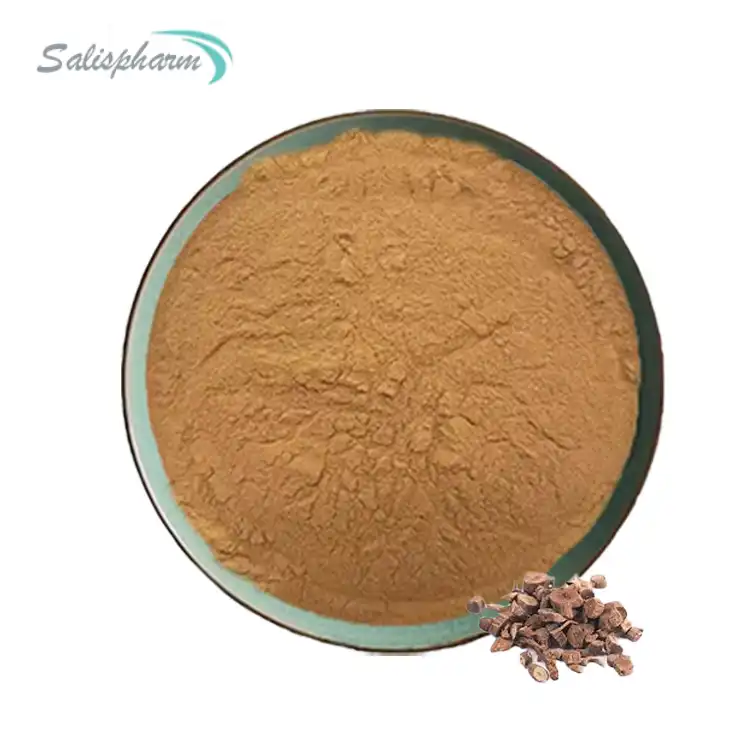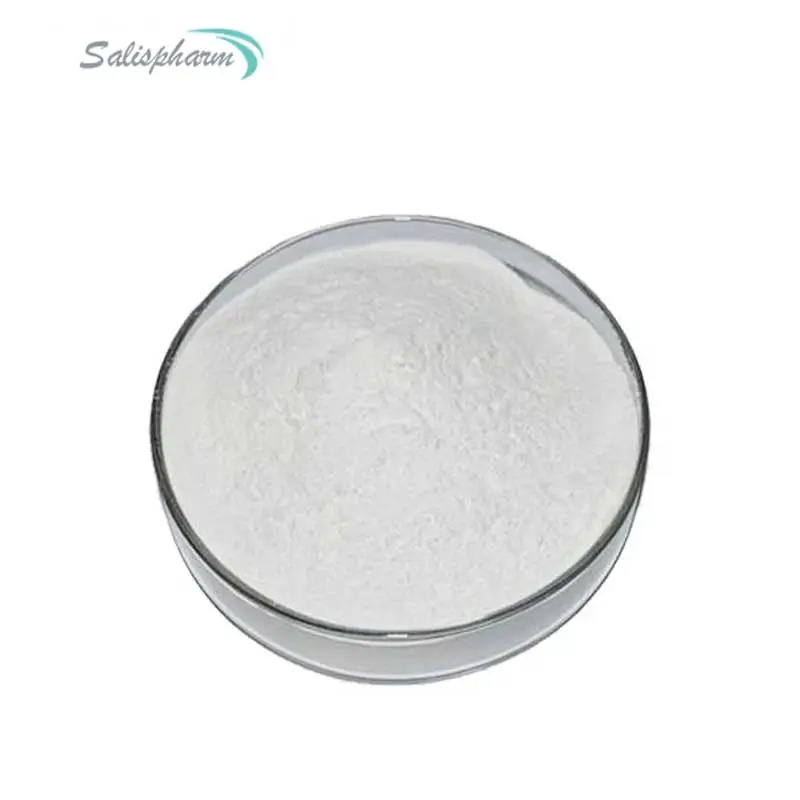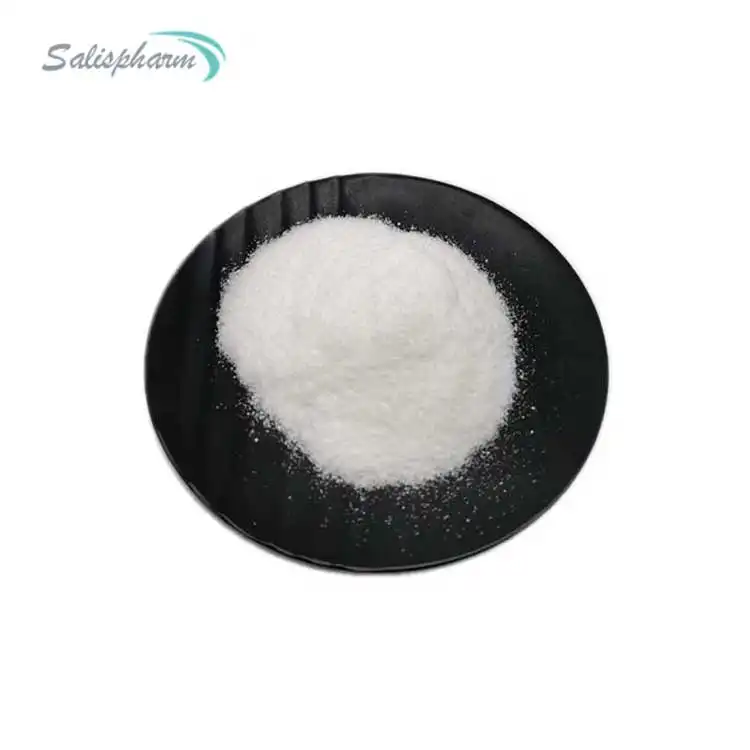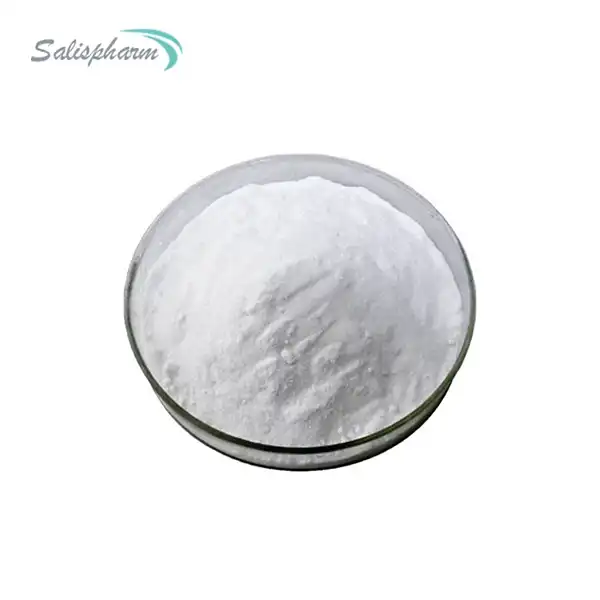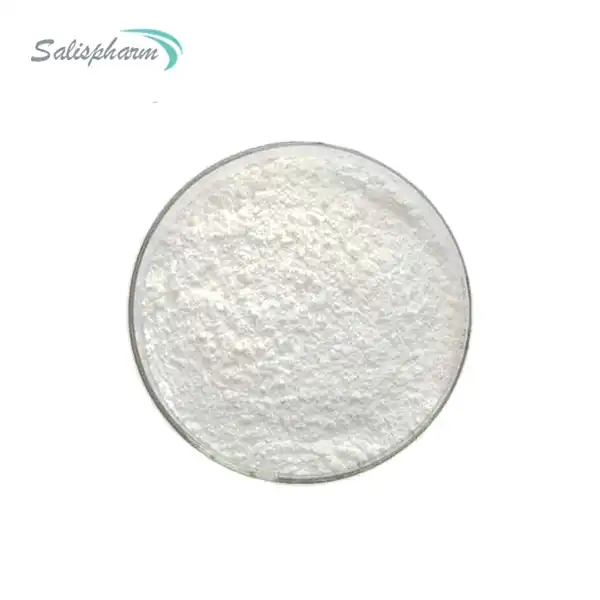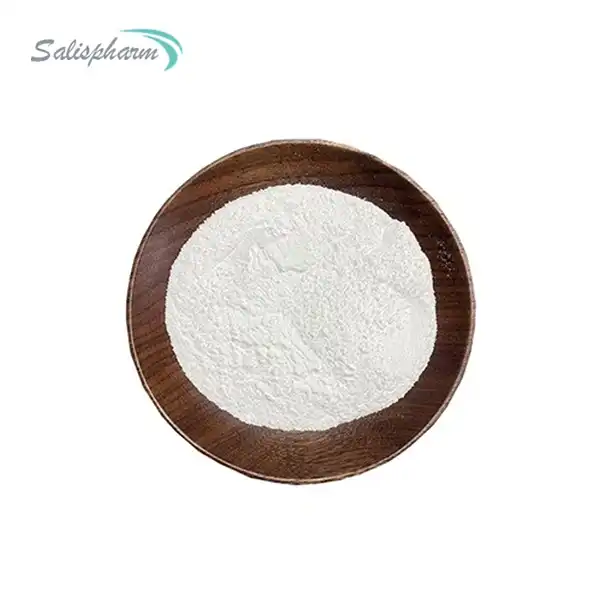Ambroxol powder has gained attention in recent years as a potential treatment for various respiratory conditions, including dry cough. As more people seek natural and effective remedies for persistent coughs, it's essential to understand the properties and applications of ambroxol powder. This blog post will explore the use of ambroxol powder for dry cough, its effectiveness, and important considerations for those considering this treatment option.
How does ambroxol powder work to relieve dry cough?
Ambroxol powder is a mucolytic agent that works by breaking down and thinning mucus in the respiratory tract. Its primary mechanism of action involves stimulating the production of surfactant, a substance that helps maintain the elasticity and stability of alveoli in the lungs. This action not only facilitates easier breathing but also helps to alleviate dry cough symptoms.
When ingested, ambroxol powder is rapidly absorbed by the body and distributed throughout the respiratory system. It acts on the goblet cells and submucosal glands, promoting the secretion of thinner, less viscous mucus. This effect is particularly beneficial for individuals suffering from dry cough, as it helps to lubricate the airways and reduce irritation that often triggers coughing fits.
Furthermore, ambroxol has been shown to possess anti-inflammatory properties, which can help reduce swelling and irritation in the respiratory tract. This dual action of mucus thinning and inflammation reduction makes ambroxol powder an attractive option for those seeking relief from dry cough.
Research has also indicated that ambroxol may enhance the effectiveness of antibiotics in treating respiratory infections, which can be a common underlying cause of persistent dry cough. By improving the penetration of antibiotics into lung tissue and bronchial secretions, ambroxol may help address both the symptoms and potential causes of dry cough.
It's important to note that while ambroxol powder can be effective in managing dry cough symptoms, it should be used under the guidance of a healthcare professional. The dosage and duration of treatment may vary depending on the individual's age, overall health, and the severity of their symptoms.
What are the potential side effects of using ambroxol powder for dry cough?
As with any medication, the use of ambroxol powder for dry cough may come with potential side effects. While generally considered safe when used as directed, it's crucial for individuals to be aware of possible adverse reactions and to consult with a healthcare provider before starting treatment.
The most commonly reported side effects of ambroxol powder are generally mild and may include:
1. Gastrointestinal discomfort: Some users may experience nausea, stomach pain, or diarrhea, particularly when taking higher doses.
2. Skin reactions: In rare cases, individuals may develop skin rashes, itching, or hives as an allergic response to ambroxol.
3. Headache: A small percentage of users have reported experiencing headaches after taking ambroxol powder.
4. Dizziness: Some individuals may feel lightheaded or dizzy, especially when starting treatment or adjusting dosages.
5. Increased mucus production: While ambroxol is designed to thin mucus, some users may initially experience an increase in mucus production as the body works to clear the respiratory tract.
It's important to note that severe side effects are rare but can occur. These may include:
1. Anaphylaxis: In extremely rare cases, individuals may experience a severe allergic reaction characterized by difficulty breathing, swelling of the face or throat, and rapid heartbeat.
2. Stevens-Johnson syndrome: This is a very rare but serious skin reaction that requires immediate medical attention.
3. Liver function abnormalities: Some studies have suggested a potential link between long-term ambroxol use and changes in liver function, although this is still being researched.
To minimize the risk of side effects, it's crucial to follow the recommended dosage and not exceed the prescribed amount. Individuals with pre-existing medical conditions, pregnant women, and those taking other medications should be particularly cautious and consult their healthcare provider before using ambroxol powder.
It's also worth noting that while ambroxol powder can be effective in managing dry cough symptoms, it may not be suitable for everyone. Some individuals may find alternative treatments more effective or better tolerated. Always discuss your options with a healthcare professional to determine the most appropriate course of treatment for your specific situation.
Can ambroxol powder be combined with other cough remedies?
When dealing with a persistent dry cough, many individuals wonder if they can combine ambroxol powder with other cough remedies to enhance its effectiveness. The answer to this question is not straightforward and depends on several factors, including the specific combination of remedies, individual health conditions, and potential drug interactions.
Ambroxol powder can often be safely combined with certain other cough remedies, but it's crucial to approach such combinations with caution and under the guidance of a healthcare professional. Here are some considerations when thinking about combining ambroxol powder with other treatments:
1. Over-the-counter (OTC) cough suppressants: Ambroxol powder, being a mucolytic agent, works differently from traditional cough suppressants. In some cases, combining ambroxol with an OTC cough suppressant may be beneficial, especially if the cough is particularly bothersome. However, it's essential to consult with a pharmacist or doctor to ensure there are no contraindications.
2. Expectorants: Since ambroxol itself has expectorant properties, combining it with other expectorants may not provide additional benefits and could potentially lead to excessive thinning of mucus. It's generally advisable to avoid this combination unless specifically recommended by a healthcare provider.
3. Natural remedies: Many people turn to natural remedies such as honey, ginger, or herbal teas to alleviate cough symptoms. While these can often be safely used alongside ambroxol powder, it's important to inform your healthcare provider about all remedies you're using to avoid potential interactions.
4. Antibiotics: If your dry cough is due to a bacterial infection, your doctor may prescribe antibiotics. As mentioned earlier, ambroxol can enhance the effectiveness of certain antibiotics in the respiratory tract. However, the timing and dosage of both medications should be carefully managed under medical supervision.
5. Inhaled medications: For individuals with conditions like asthma or COPD, who may be using inhaled medications, ambroxol powder can potentially complement these treatments by helping to clear the airways. However, the timing of ambroxol intake in relation to inhaled medications should be discussed with a healthcare provider.
6. Pain relievers: If your dry cough is accompanied by pain or discomfort, combining ambroxol powder with over-the-counter pain relievers is generally safe. However, always check with a pharmacist to ensure there are no interactions with any other medications you may be taking.
It's crucial to remember that while combining treatments can sometimes lead to better symptom management, it can also increase the risk of side effects or drug interactions. Always disclose all medications and supplements you're taking to your healthcare provider before starting ambroxol powder or any new treatment.
Moreover, it's important to address the underlying cause of your dry cough. While ambroxol powder can help manage symptoms, it may not treat the root cause of the cough. If your cough persists despite treatment, or if you experience additional symptoms such as fever, chest pain, or difficulty breathing, seek medical attention promptly.
In conclusion, ambroxol powder can be an effective treatment for dry cough, working to thin mucus and reduce inflammation in the respiratory tract. While it can potentially be combined with other cough remedies, such combinations should always be approached with caution and under medical supervision. By understanding how ambroxol works, being aware of potential side effects, and knowing how it interacts with other treatments, individuals can make informed decisions about managing their dry cough symptoms effectively and safely.
If you are also interested in this product and want to know more product details, or want to know about other related products, please feel free to contact iceyqiang@aliyun.com.
References:
1. Malerba, M., & Ragnoli, B. (2008). Ambroxol in the 21st century: pharmacological and clinical update. Expert Opinion on Drug Metabolism & Toxicology, 4(8), 1119-1129.
2. Nobata, K., Fujimura, M., Ishiura, Y., Myou, S., & Nakao, S. (2006). Ambroxol for the prevention of acute upper respiratory disease. Clinical and Experimental Medicine, 6(2), 79-83.
3. Germouty, J., & Jirou-Najou, J. L. (1987). Clinical efficacy of ambroxol in the treatment of bronchial stasis. Clinical trial in 120 patients at two different doses. Respiration, 51(Suppl 1), 37-41.
4. Paleari, D., Rossi, G. A., Nicolini, G., & Olivieri, D. (2011). Ambroxol: a multifaceted molecule with additional therapeutic potentials in respiratory disorders of childhood. Expert Opinion on Drug Discovery, 6(11), 1203-1214.
5. Weiser, T., & Wilson, N. (2011). Inhibition of tetrodotoxin (TTX)-resistant and TTX-sensitive neuronal Na+ channels by the secretolytic ambroxol. Molecular Pharmacology, 79(5), 1019-1028.
6. Deretic, V., & Timmins, G. S. (2019). Enhancement of lung levels of antibiotics by ambroxol and bromhexine. Expert Opinion on Drug Metabolism & Toxicology, 15(3), 213-218.
7. Kantar, A., Klimek, L., Cazan, D., Sperl, A., Sent, U., & Mesquita, M. (2020). An overview of efficacy and safety of ambroxol for the treatment of acute and chronic respiratory diseases with a special regard to children. Multidisciplinary Respiratory Medicine, 15(1), 511.
8. Zanasi, A., Mazzolini, M., & Kantar, A. (2017). A reappraisal of the mucoactive activity and clinical efficacy of bromhexine. Multidisciplinary Respiratory Medicine, 12(1), 7.
9. Beeh, K. M., Beier, J., Esperester, A., & Paul, L. D. (2008). Antiinflammatory properties of ambroxol. European Journal of Medical Research, 13(12), 557-562.
10. Malerba, M., & Ragnoli, B. (2019). Ambroxol in the 21st century: pharmacological and clinical update. Expert Opinion on Drug Metabolism & Toxicology, 15(2), 143-149.



